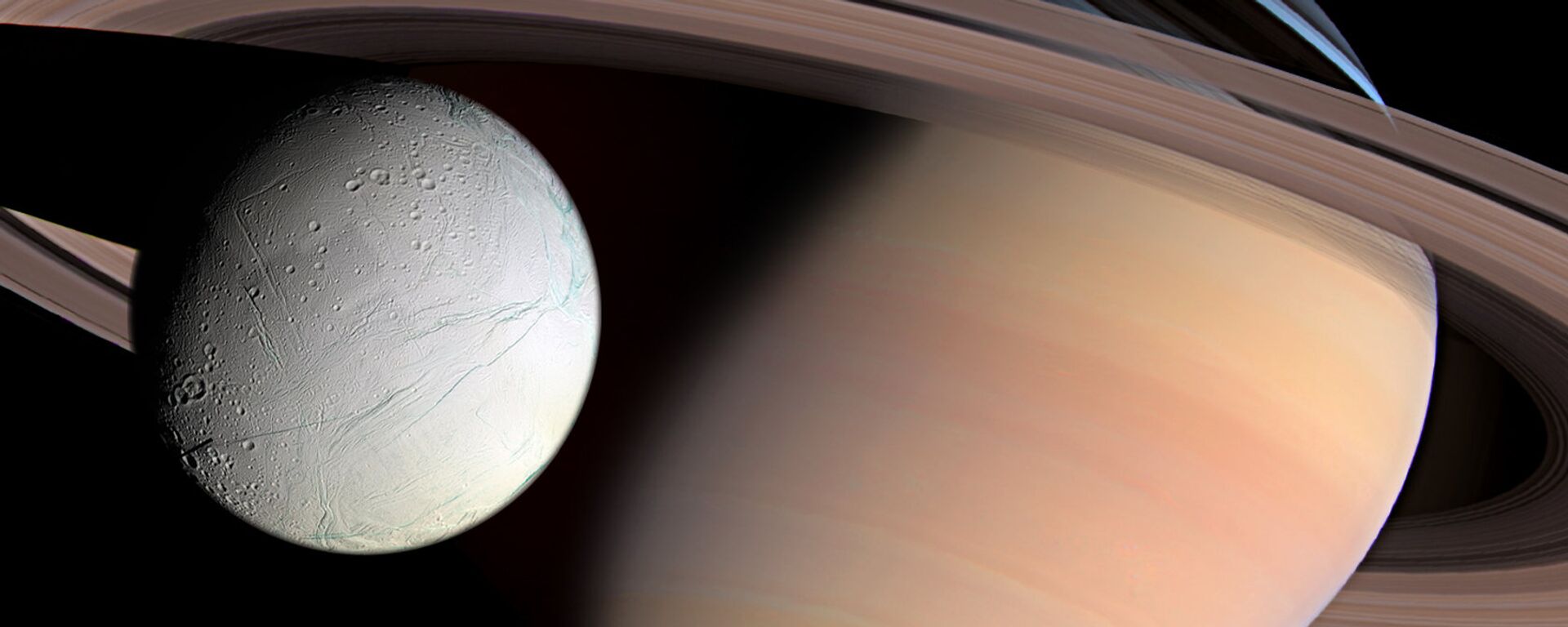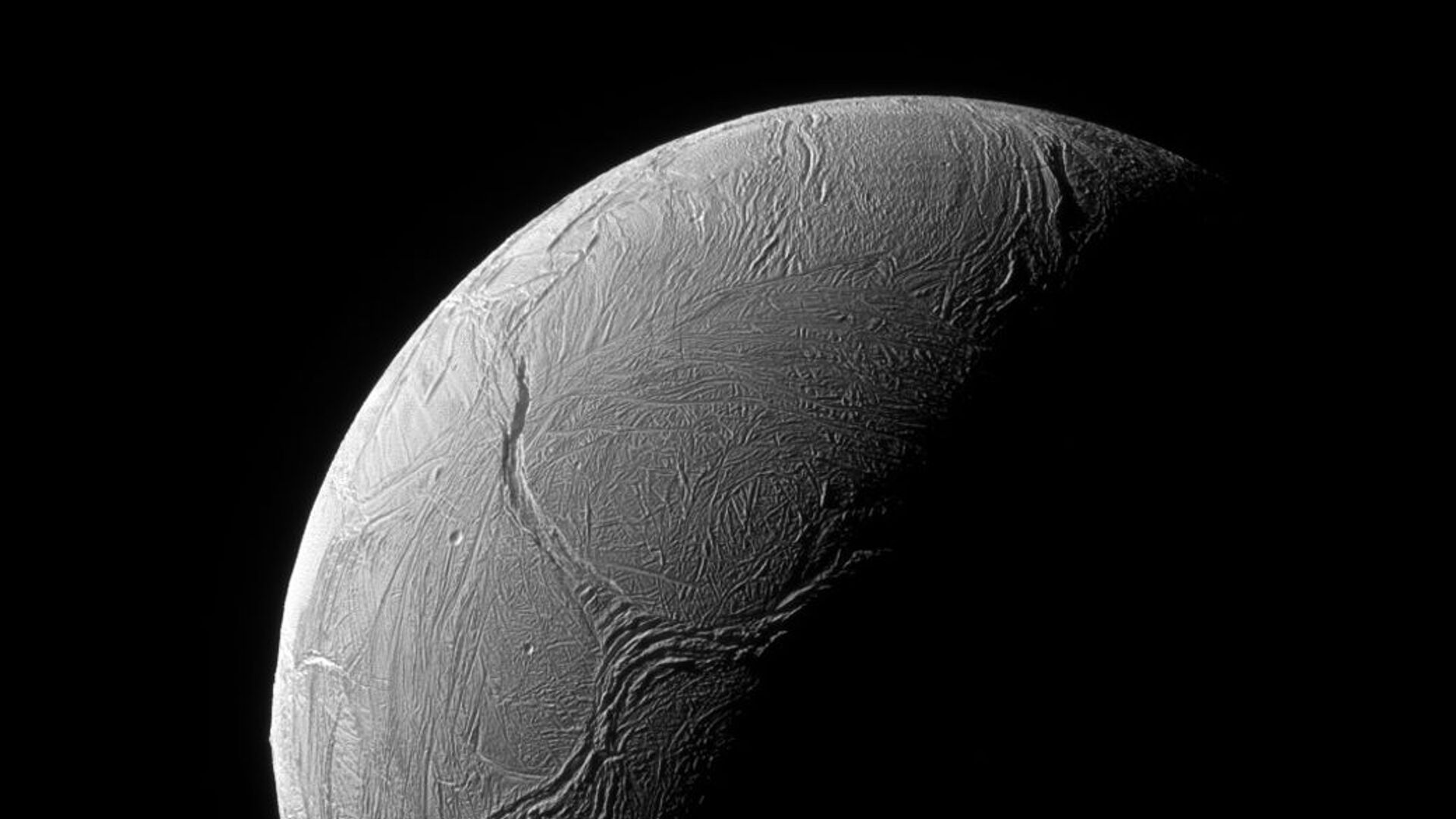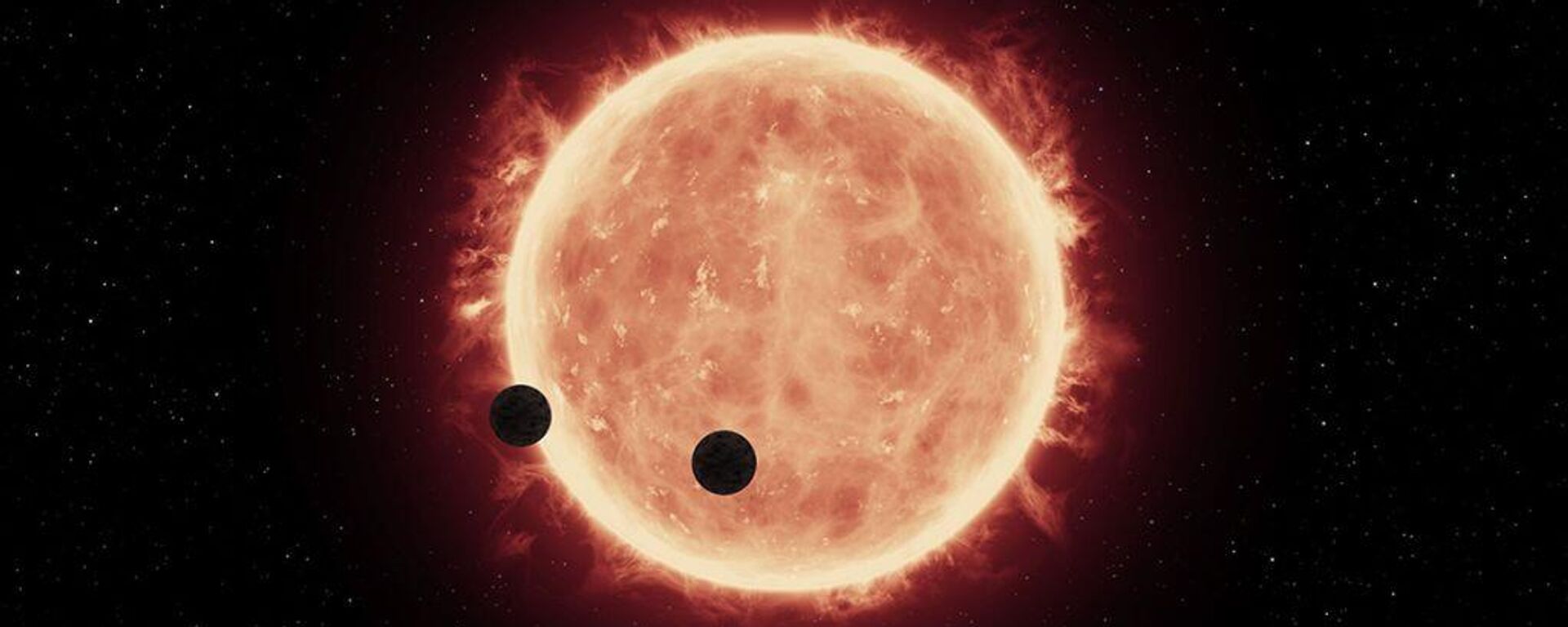https://sputnikglobe.com/20230615/researchers-uncover-essential-ingredient-for-life-in-enceladus-soda-ocean-1111165105.html
Researchers Uncover Essential Ingredient for Life in Enceladus' 'Soda Ocean'
Researchers Uncover Essential Ingredient for Life in Enceladus' 'Soda Ocean'
Sputnik International
The discovery of dissolved sodium phosphate in the ocean makes Enceladus even more intriguing in the search for habitable worlds beyond Earth.
2023-06-15T00:37+0000
2023-06-15T00:37+0000
2023-06-20T17:11+0000
beyond politics
science & tech
enceladus
nasa
cassini
space
space exploration
https://cdn1.img.sputnikglobe.com/img/104882/04/1048820463_0:191:1041:777_1920x0_80_0_0_8d8cc88004f69a681461ef8a824a3f68.jpg
The search of life in our solar system just gained a new level of excitement after researchers discovered phosphates - a key ingredient for life - on Enceladus, Saturn's sixth-largest moon.Enceladus, despite its modest size, has a unique "soda ocean" beneath a thick layer of ice. The ocean is carbonated, bubbly, and salty, and particles from the ocean migrate through cracks in the ice and spew into space, creating plumes.Carbon, hydrogen, nitrogen, oxygen, phosphate, phosphorus and sulphur are necessary for the origin of life, he explained. Of these six components, phosphates were the only one not previously found in Cassini data - past studies have shown the presence of all other components on Enceladus.After publishing a limited analysis of the data in 2017, the team received funding from the European Research Council to analyze a much larger dataset.However, he cautioned that this does not confirm the presence of life on Enceladus.Postberg suggests that the ocean might taste a little soapy if you had a glass of it. He also mentioned, "that doesn’t mean that it’s actually hosting life, that it’s inhabited."The detection of phosphorus in the ocean required extensive analysis of data from Cassini's instruments. Jonathan Lunine, a Cornell University planetary scientist, stated, "Enceladus has such an Earth-like interior ocean that if life is present, we will recognize it." The abundance of phosphorus in Enceladus' ocean indicates that it is not a limiting factor for potential life there.Mikhail Zolotov, an Arizona State University planetary geochemist, who reviewed the paper, expressed his preference for Mars as the most likely abode of life beyond Earth, but acknowledged the presence of numerous unknowns.While Enceladus is considered one of the most fascinating worlds in our solar system, Europa, one of Jupiter's moons, also holds the potential for hosting life. NASA's Europa Clipper mission, scheduled for launch next year, will provide a closer look at Europa's potential habitability. For now, Enceladus stands out as a captivating celestial body deserving of further exploration.The results of the study was published in Nature journal.
https://sputnikglobe.com/20191003/nasa-hails-major-breakthrough-as-new-organic-compounds-discovered-on-alien-moon-1076950774.html
https://sputnikglobe.com/20230505/astronomers-capture-rarely-seen-moment-of-dying-star-eating-jupiter-sized-planet-1110108801.html
enceladus
Sputnik International
feedback@sputniknews.com
+74956456601
MIA „Rosiya Segodnya“
2023
News
en_EN
Sputnik International
feedback@sputniknews.com
+74956456601
MIA „Rosiya Segodnya“
Sputnik International
feedback@sputniknews.com
+74956456601
MIA „Rosiya Segodnya“
saturn enceladus, saturn moon, phosphate enceladus, life on other planets, space exploration, extraterrestrial life
saturn enceladus, saturn moon, phosphate enceladus, life on other planets, space exploration, extraterrestrial life
Researchers Uncover Essential Ingredient for Life in Enceladus' 'Soda Ocean'
00:37 GMT 15.06.2023 (Updated: 17:11 GMT 20.06.2023) Data from NASA's Cassini spacecraft has revealed that Saturn's moon Enceladus contains phosphorus in its subsurface ocean. The discovery of dissolved sodium phosphate in the ocean makes Enceladus even more intriguing in the search for habitable worlds beyond Earth.
The search of life in our solar system just gained a new level of excitement after researchers discovered phosphates - a key ingredient for life - on Enceladus, Saturn's sixth-largest moon.
Enceladus, despite its modest size, has a unique "soda ocean" beneath a thick layer of ice. The ocean is carbonated, bubbly, and salty, and particles from the ocean migrate through cracks in the ice and spew into space, creating plumes.
"We now really have found that Enceladus’s subsurface ocean is the most habitable place in the solar system, at least as far as we know," said lead author of the study Frank Postberg.
Carbon, hydrogen, nitrogen, oxygen, phosphate, phosphorus and sulphur are necessary for the origin of life, he explained. Of these six components, phosphates were the only one not previously found in Cassini data - past studies have shown the presence of all other components on Enceladus.

3 October 2019, 09:23 GMT
After publishing a limited analysis of the data in 2017, the team received funding from the European Research Council to analyze a much larger dataset.
Postberg noted the team wasn't specifically looking for phosphates: "We just thought, let’s look at a much larger dataset and the composition of individualized grains. After more than three years, I found these nine ice grains in which phosphates were found."
However, he cautioned that this does not confirm the presence of life on Enceladus.
Postberg suggests that the ocean might taste a little soapy if you had a glass of it. He also mentioned, "that doesn’t mean that it’s actually hosting life, that it’s inhabited."
The detection of phosphorus in the ocean required extensive analysis of data from Cassini's instruments. Jonathan Lunine, a Cornell University planetary scientist, stated, "Enceladus has such an Earth-like interior ocean that if life is present, we will recognize it." The abundance of phosphorus in Enceladus' ocean indicates that it is not a limiting factor for potential life there.
Mikhail Zolotov, an Arizona State University planetary geochemist, who reviewed the paper, expressed his preference for Mars as the most likely abode of life beyond Earth, but acknowledged the presence of numerous unknowns.
"We don’t know how life originated, and under what conditions," said Zolotov as quoted by US media.
While Enceladus is considered one of the most fascinating worlds in our solar system, Europa, one of Jupiter's moons, also holds the potential for hosting life.
NASA's Europa Clipper mission, scheduled for launch next year, will provide a closer look at Europa's potential habitability. For now, Enceladus stands out as a captivating celestial body deserving of further exploration.
The results of the study was published in
Nature journal.






